We go through the facts and controversies surrounding Vero, the trendy new social media app!
If you're tuned into the latest social media fads you've probably been hearing about Vero over the past few weeks. This new app, currently in beta, seemingly exploded over night on the promise of offering an ad-free social media platform that lets you share and view content chronologically and organized by the type of content you share.
Oh, and it'll eventually be a paid subscription service but users who sign up now will get free access for life.
Want to learn more? Let's dive in.
What is Vero?
So the name Vero is taken from the Italian word for "truth", which ostensibly connects to the core concept behind Vero as being a 'true social media ' network that aims to deliver a more authentic user experience by cutting out the ads and giving you more control over who sees the content that you post.
Available for both iOS and Android, it's laid out similarly to Instagram and features an eye-pleasing dark layout. After spending some time at the top of the Google Play Store charts, Vero quickly amassed over 1 million users and has been touted as an alternative to Facebook and other traditional social media networks that rely on ad-based revenue.
What makes Vero different?
Vero posted a manifesto that does a good job of articulating the vision behind the app. Basically, if you've been fed up with the way Facebook and Instagram have devolved into superficial marketing tools, Vero is looking to take social media in the other direction.
There are three big differences between the big social media brands such as Facebook, Instagram, and Twitter and what Vero is offering: no ads, no "trending" algorithms, and, eventually, the implementation of a paid subscription.
When Vero says that there will be no ads, that is to say that you will only ever see content from people or brands that you follow. Vero allows brands, companies, and charitable organizations to set up accounts on Vero complete with merchant or donation links for selling directly to Vero users — but you will only ever see those posts on your feed if you choose to follow those accounts. As well, you have the option of privately setting the friends you connect with into three categories — Acquaintances, Friends, and Close Friends — and you control who sees the content you post.
There are six different types of content you can share on Vero: Images/videos, Links, Music, Movie/TV, Books, and Places. Content is displayed in the main feed based on when it was posted, so you'll never miss a post from a friend because an algorithm decided to show you something else instead. Furthermore, there's the "Collections" tab right on the home screen that makes it really easy to browse through each post category and see everything that you and your friends have shared.
Right now, Vero users can sign up and use the service for free but at some point a switch will be flipped and Vero will require a paid subscription. Initially, Vero offered free lifetime access for the first million users that registered but after the app quickly surpassed that number in spite of some really frustrating technical issues Vero announced that it would be extending the "free for life" offer to all new users until further notice.
That sounds good, however…
Vero's quick rise over the past few weeks has unearthed some potential controversies. For starters, the big influx of new users crippled the Vero servers leading to a nearly unusable app for a few days and a bunch of issues for people trying to register. The app has greatly improved since and is now fairly stable on its latest update, but those rough first impressions led to a ton of hot takes about the app being garbage which may have permanently turned some folks off.
We apologize for the late update.
— Vero (@verotruesocial) February 26, 2018
We are scaling our servers to meet the increasing demand.
We appreciate your continued patience while we work to restore service.
Vero's viral rise also brought to light some other controversies, seemingly started by a series of tweets by user Pasquale D'Silva that raised a number of questions about previous business dealings by Vero CEO Ayman Hariri, and pointing out that the Vero development team is predominantly male and made up of mostly Russian-born developers.
The optics of a Russian-developed social media app launching at a time when the Russian government is being accused of meddling with foreign politics in the U.S. is enough to give some folks pause.
Hariri is a Lebanese billionaire heir and businessman whose father served as prime minister of Lebanon until his assassination in 2005. His brother, Saad, is currently serving as prime minister of Lebanon, so it would be fair to say that his family is politically connected to say the least. Ayman was previously the CEO of Saudi Oger Ltd, a construction company owned and operated by the Hariri family based out of Saudi Arabia. The company was accused of not paying and mistreating thousands of migrant workers back in 2015 based on reporting by Reuters in 2016, and this was shared on social media and widely reported, however Vero has come out and clarified that Ayman divested his interests in Saudi Oger in 2013 and shifted his focus to new ventures including starting Vero in 2015. Saudi Oger shut down operations in 2017.
So while that might clear up that bit of controversy dogging CEO's history, the optics of a Russian-developed social media app in a time when the Russian government is being accused of meddling with foreign politics in the U.S. is enough to rightly give some folks pause.
Hariri has attempted to ease concerns over his development team. In an interview with TIME, he argued that the nationality of the people developing the app is "irrelevant":
"At the end of the day, where people are from is really not how anybody should judge anyone," Hariri says. "The people that I work with are incredibly talented, dedicated, honest people that really care about the user experience and developing something that has meaning and is well thought out. There's a tremendous amount of care that pours into what we're doing. And so it's completely irrelevant where they're from. What's important is the work they do and their commitment to creating a real online social network and not an online network that takes advantage of the fact that people like to be social with one another."
Whether or not you buy into Hariri's rhetoric here or remain wary is at your own discretion.
Can it live up to the hype?
This is really hard to say. We've all seen social media apps that have come and gone — remember Peach, Mastodon, or Ello? If you don't, there's a reason. But purely based on the app design and the deep pockets of the man leading Vero, it does feel like a strong contender to stick around and challenge the current ad-based model for social media.
Of course, there are many questions that remain that might keep people away from Vero. Is there anything actually nefarious surrounding it's Russian development team, or are those xenophobic concerns unfounded? Can Vero prove itself to be a stable social media platform? Finally, and most importantly of all, will anyone actually pay to use Vero, or will they inevitably be forced to pivot to an ad-based revenue model?
Speaking from my own personal experience using Vero, I've enjoyed using Vero since it's stability has improved and I will continue to test the waters. But until I see a more concrete migration from Facebook to Vero from my personal social circle, it would be hard for me to fully commit to a platform that still lacks the content of its competition.
A social media platform is only as good as the users who use it.
What do you think about Vero?
Have you or your friends signed up? What do you think of the app's offering? Do you think this will be another flash-in-the-pan social media app or will it stick around and challenge the likes of Facebook and Instagram? Let us know in the comments.
from Android Central - Android Forums, News, Reviews, Help and Android Wallpapers http://ift.tt/2FBfYO2
via IFTTT
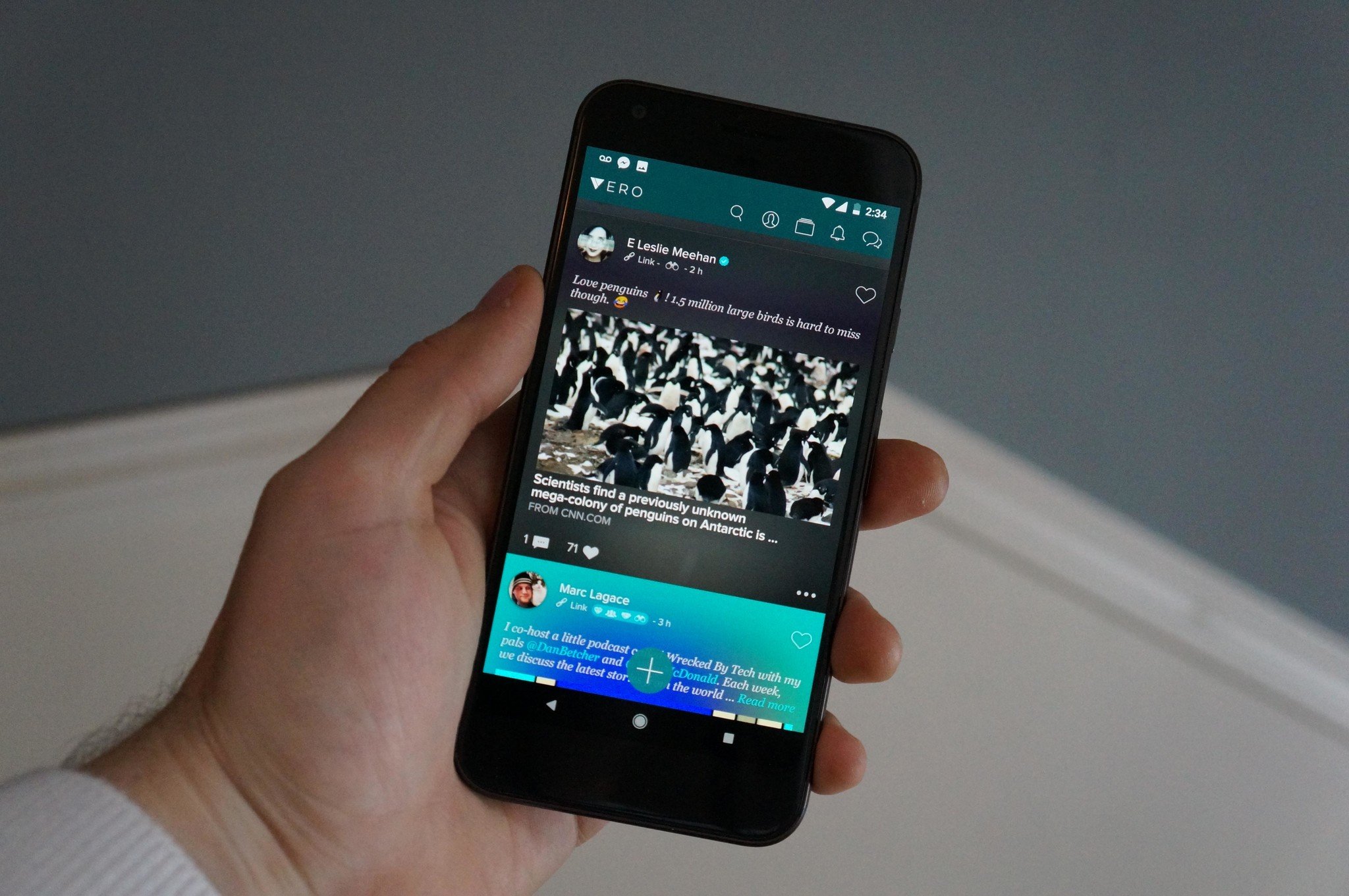

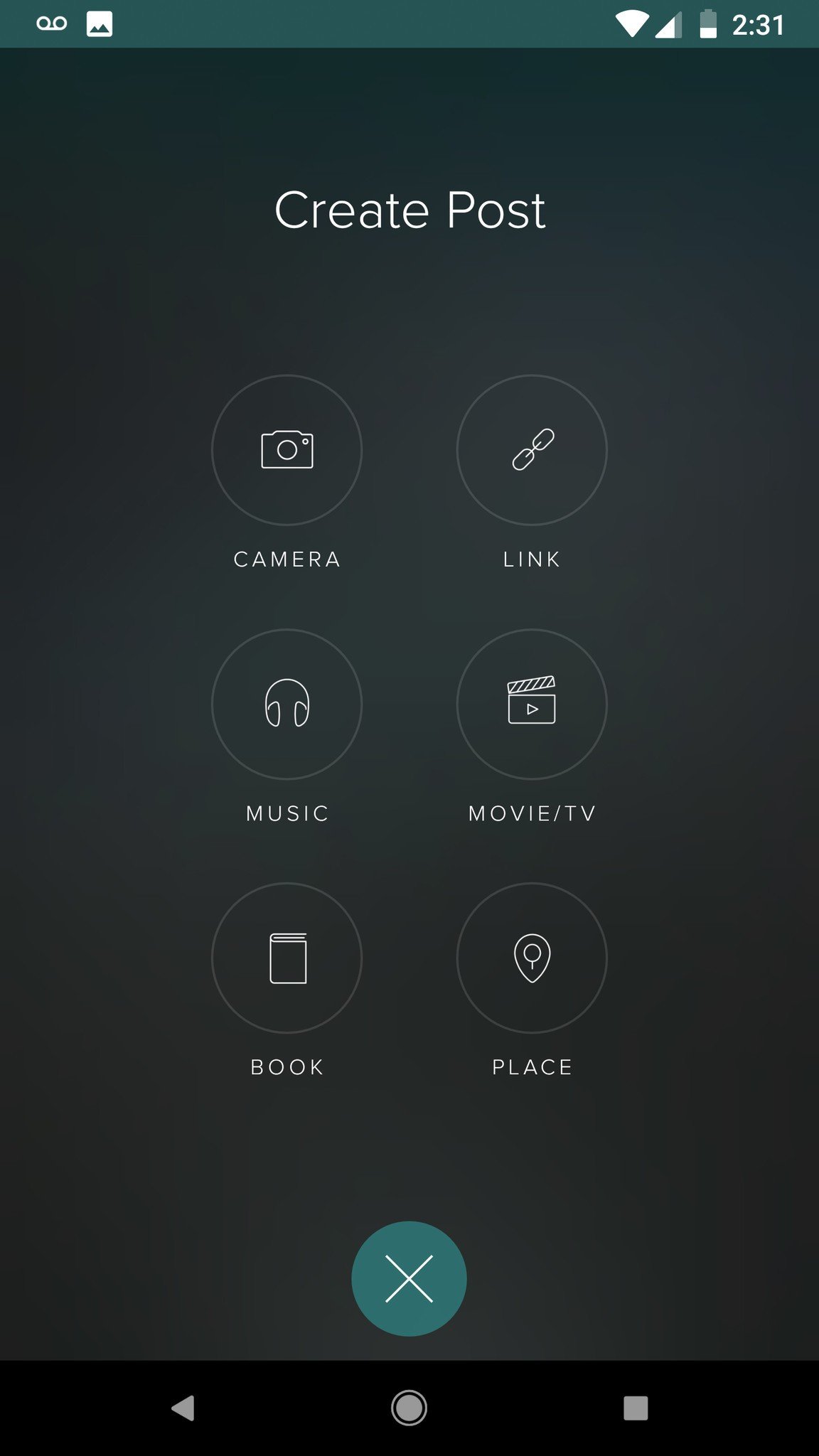
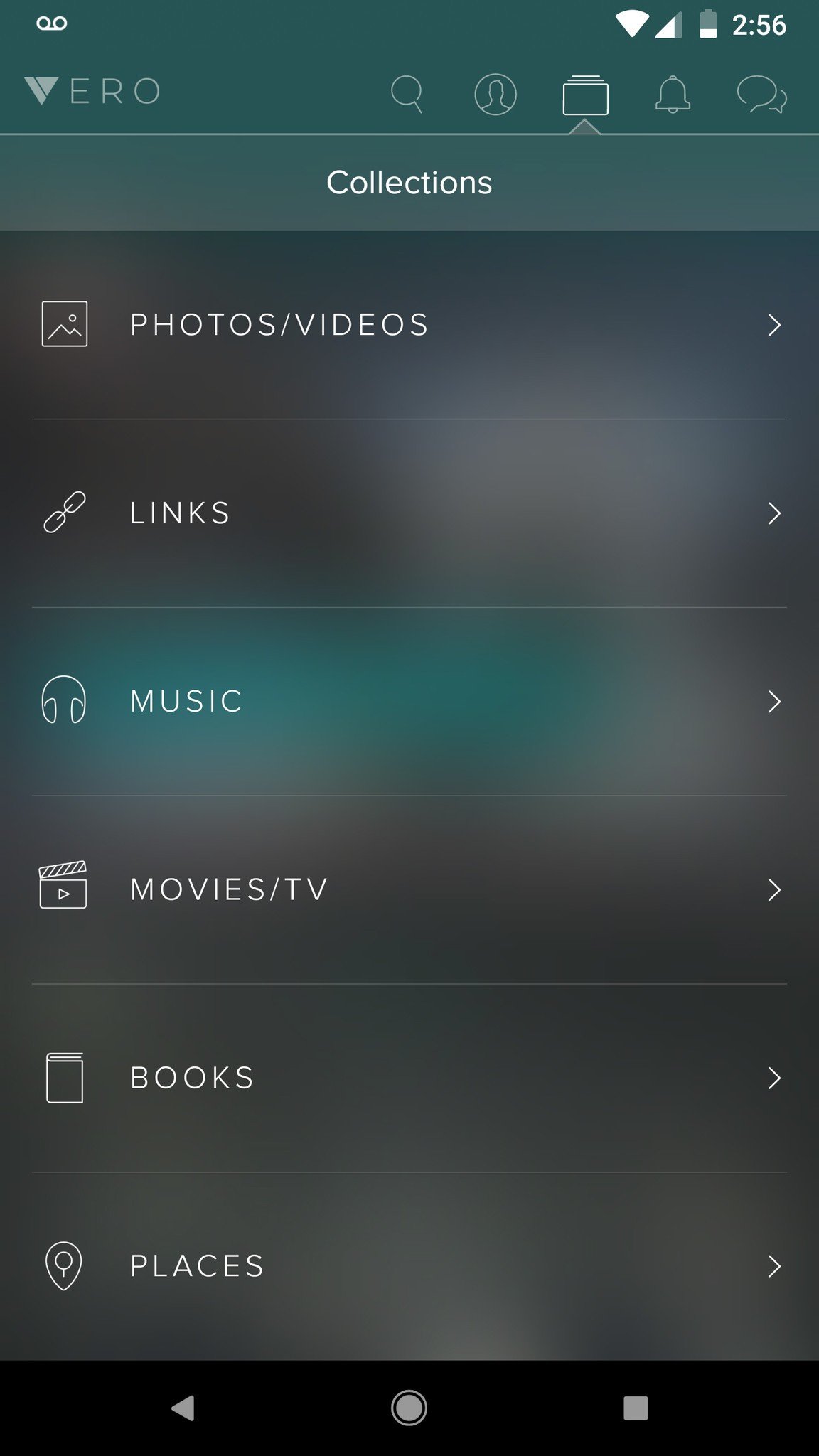
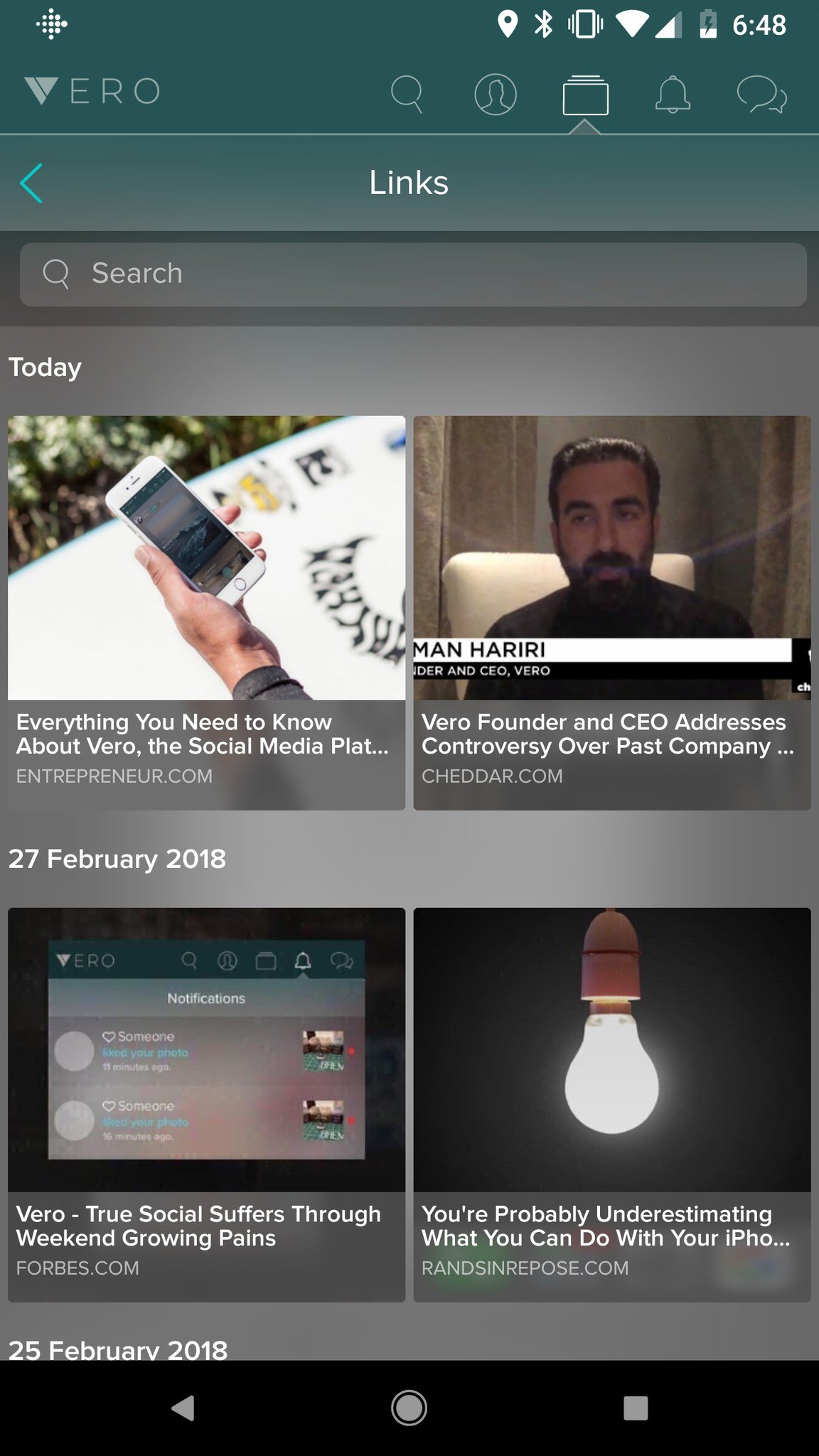
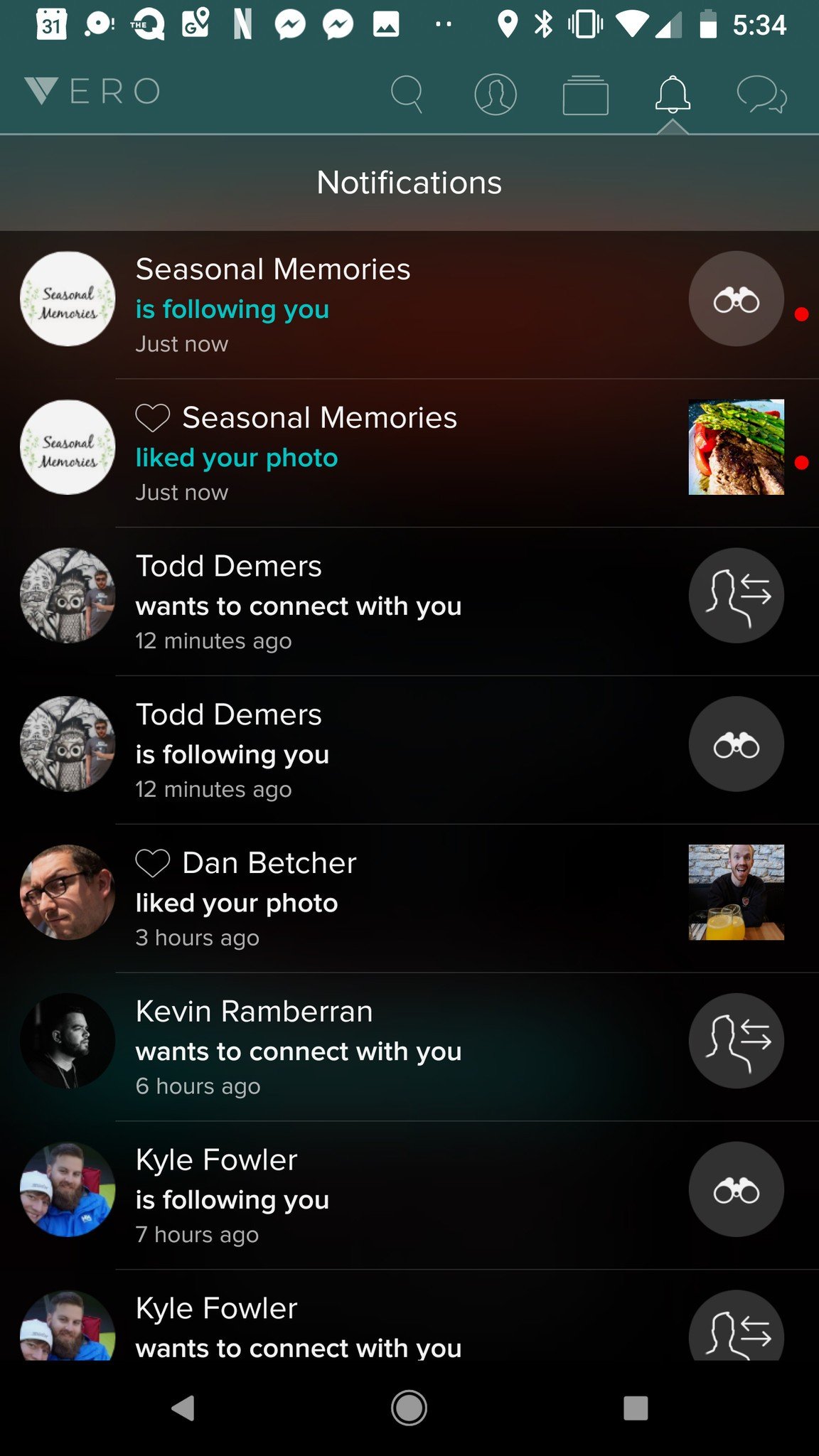
No comments:
Post a Comment